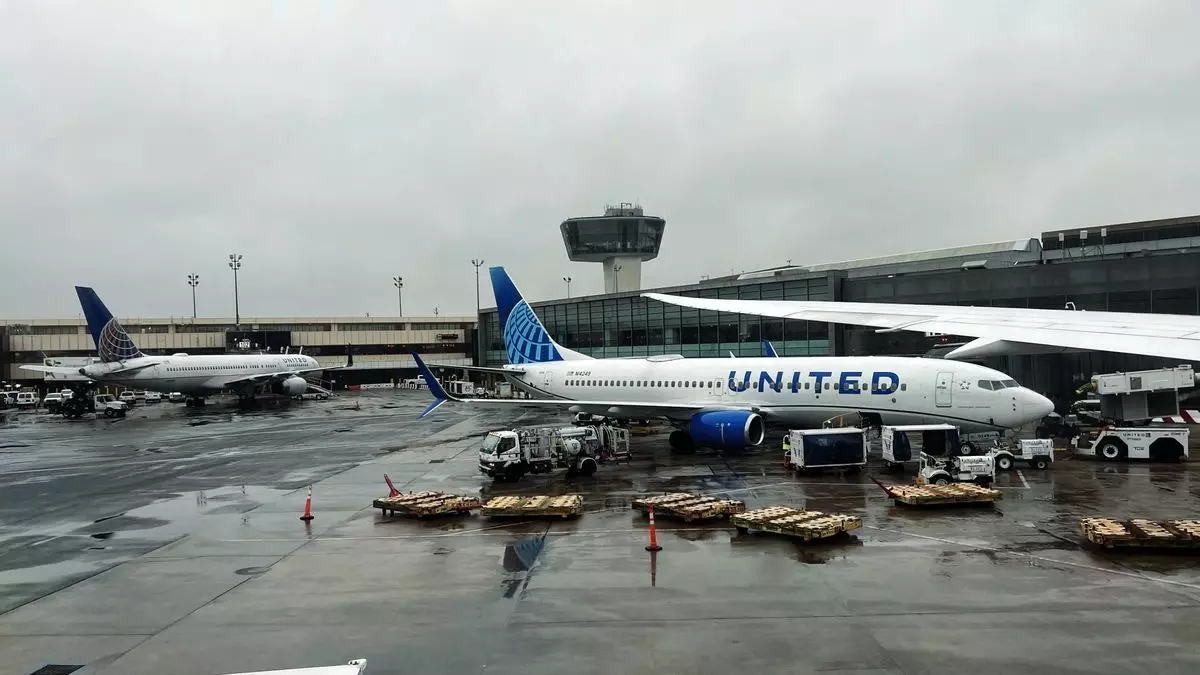Recent events at Newark Liberty International Airport serve as a glaring example of the precarious state of air travel in the United States. Delays and cancellations have plagued the bustling airport, forcing passengers into a state of frustration as they navigate the chaos. Senate Minority Leader Chuck Schumer, representing New York, has highlighted the urgent need for an investigation into the systemic failures that have led to this turmoil. It’s a clarion call for accountability in a critical infrastructure component that affects countless lives daily.
The instigating factors for this disruption are multifaceted. Chief among them is a severe shortage of air traffic controllers, which has been exacerbated by the challenges posed by weather conditions. Cloud cover has not only complicated flight operations but has revealed a troubling vulnerability within an already beleaguered system. If there ever was a red flag indicating the necessity for reinvestment and modernization in air traffic control, it’s the sight of passengers stranded due to insufficient staffing.
Political Response to Systemic Failures
In light of the ongoing disruptions, New Jersey Governor Phil Murphy has taken action by reaching out to Transportation Secretary Sean Duffy, urging a more robust investment and support system for Newark and similar troubled airports. The narrative here shifts from mere inconvenience to one of civic duty; when airports falter, the economic implications ripple throughout communities and beyond. Murphy’s proactive approach signifies that local leaders are not content to let the status quo dictate the future of air travel.
Schumer’s request for an inspector general’s investigation into the existing conditions at Newark should not be seen as merely a political maneuver. Instead, it reflects a growing concern among lawmakers that this issue is symptomatic of national neglect regarding air travel infrastructure. It’s not just Newark facing these battles; similar issues can be observed across the country, indicating a broad pattern of managerial oversight and operational inadequacies that need immediate attention.
The Role of Airlines in Addressing Air Traffic Control Challenges
United Airlines, as one of the primary carriers operating from Newark, has expressed its grievances regarding the breakdown in technology intended to aid in flight management. CEO Scott Kirby’s admission that Newark’s air traffic control technology has failed multiple times is a stark reminder of the critical need for investment in operational systems that ensure safety and efficiency. By cutting 35 daily flights from its Newark schedule, United highlights not just their circumstances but also opens a dialogue about broader industry practices that lead to operational paralysis in the face of adversity.
The situation calls into question a fundamental aspect of the airline industry: the balance between operational efficiency and passenger service. While airlines must manage their routes and resources effectively, the overarching responsibility lies with the federal entities in charge of air traffic control. Without appropriate staffing and modern technology, even the most well-structured airlines cannot succeed.
Voices from the Front Lines: Air Traffic Controllers’ Perspectives
The National Air Traffic Controllers Association (NATCA) has voiced the need for urgent reforms, underscoring the urgency behind calls for improved technology and better working conditions. This labor union is not merely a voice of dissent; they are the frontline defenders of air travel safety and efficiency. Their assessments bring to light the serious ramifications that staffing shortages can have on both air traffic safety and operational capacity.
Moreover, the fact that a significant percentage of Newark’s controllers “walked off the job” points to underlying issues of morale and job satisfaction within the air traffic control workforce. This flight of professionals reflects not merely dissatisfaction with working conditions but serves as an indictment of a system that has failed to meet their professional and personal needs.
A Broader Economic Context: The Airline Industry’s Future
The current turmoil at Newark cannot be disentangled from the greater economic landscape affecting consumers and airlines alike. United’s atypical decision to issue dual financial forecasts—one anticipating a recession and another for stable growth—reflects the chaos and uncertainty looming over the airline industry as a whole. With businesses and families reconsidering travel under such circumstances, there is an urgent need for trust in the system.
In the midst of political maneuvering and management challenges, what is required more than anything is an unwavering commitment to restoring public faith in air travel. For an industry already hit hard by the pandemic, the ongoing dysfunction at critical hubs like Newark is a challenge that cannot be ignored. As we look toward the future, prioritizing seamless travel and investing in infrastructure is not just a matter of convenience but of national interest.


Leave a Reply